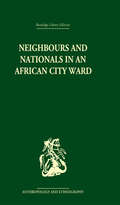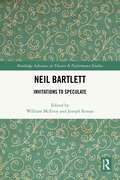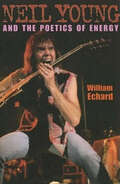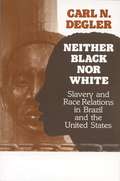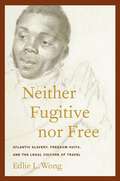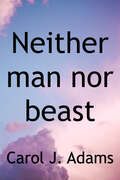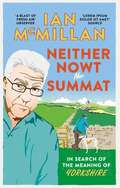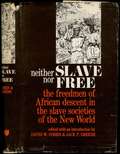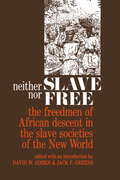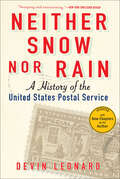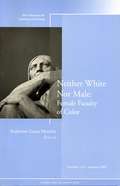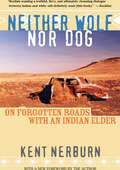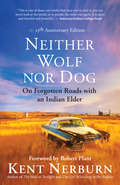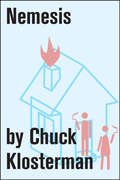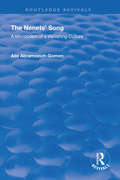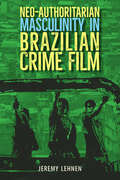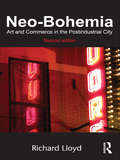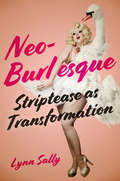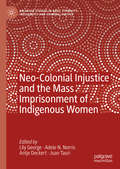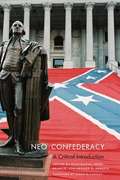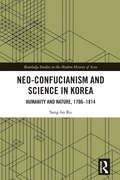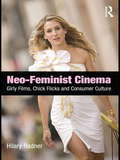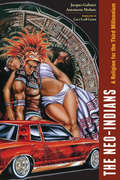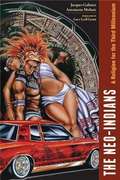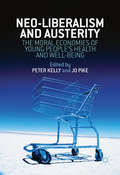- Table View
- List View
Neighbours and Nationals in an African City Ward
by David ParkinThis study analyses the way in which tribal ties are maintained in the development of a tribally mixed, middle class community in Kampala, Uganda. Political independence in the early nineteen sixties in much of Africa created expectations of increased development, education and living standards. There was hope that ethnic tensions arising from false colonial boundaries might be transcended by newly emerging socio-economic status-groups. However, the new national boundaries suddenly made aliens of peoples who had migrated and settled in towns distant from their home countries. The interplay of nationality, ethnicity and socio-economic status or class was given a new theatre. Hope was dramatically tempered by nationalist and ethnic conflicts which cut across ethnically mixed, small status groups of neighbours and friends. In Kampala, Uganda, this rapidly unfolding drama resulted in the expulsion of two Kenyan ethnic groups and polarised peoples from northern and southern Uganda. The essentialisation of ethnic and national identity imposed by colonialism was thus taken on in this new situation by the people themselves, with the result that they became 'cultural' starting-points of social and political judgement. Originally published in 1969.
Neil Bartlett: Invitations to Speculate (Routledge Advances in Theatre & Performance Studies)
by William McEvoy Joseph RonanThis book explores Neil Bartlett’s groundbreaking contributions to queer cultural production in the United Kingdom. It adopts a range of critical perspectives, presenting original scholarship on Bartlett’s fiction, theatre, performance, site-specific work, and adaptations, as well as more personal reflections on Bartlett’s influence and legacy.Charting his emergence as a radical queer artist in the 1970s, his writing for performance and theatre in the 1980s to the present day, and his evocative novels about queer spaces and hidden histories, the book considers Bartlett’s works as ‘invitations to speculate’: to view and imagine otherwise, as part of a political aesthetics committed to making queer lives visible. Bartlett’s bold, sensuous, and challenging work crosses genres to find new ways of articulating queer desires, unearthing histories of the body, pleasure, and gay subjectivity while connecting queer experiences across time.Dealing with topics including memory and loss, AIDS and its legacy, marginality, community, and identity, the collection shows how Bartlett embraces the past as a way of reimagining queer futures and demonstrates his status as one of the UK’s leading queer artists.
Neil Young and the Poetics of Energy
by William Echard“This book uniquely and successfully sustains a cohesive analysis of the work, career, and reception of a single artist . . . Neil Young.” —Daniel Cavicchi, author of Tramps Like UsAs a writer in Wired magazine puts it, Neil Young is a “folk-country-grunge dinosaur [who has been] reborn (again) as an Internet-friendly, biodiesel-driven, multimedia machine.” In Neil Young and the Poetics of Energy, William Echard stages an encounter between Young’s challenging and ever-changing work and current theories of musical meaning—an encounter from which both emerge transformed.Echard roots his discussion in an extensive review of writings from the rock press as well as his own engagement as a fan and critical theorist. How is it that Neil Young is both a perpetual outsider and critic of rock culture, and also one of its most central icons? And what are the unique properties that have lent his work such expressive force? Echard delves into concepts of musical persona, space, and energy, and in the process illuminates the complex interplay between experience, musical sound, social actors, genres, styles, and traditions.Readers interested primarily in Neil Young, or rock music in general, will find a new way to think and talk about the subject, and readers interested primarily in musical or cultural theory will find a new way to articulate and apply some of the most exciting current perspectives on meaning, music, and subjectivity.“A fascinating and unique reading of Neil Young’s music.” —Literary Review of Canada“[An] intriguing, elegantly written analysis of Young . . . Exemplifies the fruitful union of musicology and cultural studies.” —Cotten Seiler, Dickinson College
Neither Black Nor White: Slavery And Race Relations In Brazil And The United States
by Carl N. DeglerCarl Degler's 1971 Pulitzer-Prize-winning study of comparative slavery in Brazil and the United States is reissued in the Wisconsin paperback edition, making it accessible for all students of American and Latin American history and sociology. <P><P> Until Degler's groundbreaking work, scholars were puzzled by the differing courses of slavery and race relations in the two countries. Brazil never developed a system of rigid segregation, such as appeared in the United States, and blacks in Brazil were able to gain economically and retain far more of their African culture. Rejecting the theory of Giberto Freyre and Frank Tannenbaum—that Brazilian slavery was more humane—Degler instead points to a combination of demographic, economic, and cultural factors as the real reason for the differences. <P><P><i>“In the early 1970s when studies in social history were beginning to blossom on the North American scene, Carl Degler's prize-winning contribution was a thoughtful provocative essay in comparative history. Its thoughtfulness has not diminished with the years. Indeed, it is as topical today as when it was first published. The Brazilian experience with rapid industrialization and its attempt to restore democratic government indicates that the issues which Degler treated in the early 1970s are more pertinent than ever today.”—Franklin W. Knight, Department of History, Johns Hopkins University.</i>
Neither Fugitive nor Free: Atlantic Slavery, Freedom Suits, and the Legal Culture of Travel (America and the Long 19th Century #8)
by Edlie L. WongPart of the American Literatures Initiative Series Neither Fugitive nor Free draws on the freedom suit as recorded in the press and court documents to offer a critically and historically engaged understanding of the freedom celebrated in the literary and cultural histories of transatlantic abolitionism. Freedom suits involved those enslaved valets, nurses, and maids who accompanied slaveholders onto free soil. Once brought into a free jurisdiction, these attendants became informally free, even if they were taken back to a slave jurisdiction—at least according to abolitionists and the enslaved themselves. In order to secure their freedom formally, slave attendants or others on their behalf had to bring suit in a court of law.Edlie Wong critically recuperates these cases in an effort to reexamine and redefine the legal construction of freedom, will, and consent. This study places such historically central anti-slavery figures as Frederick Douglass, Olaudah Equiano, and William Lloyd Garrison alongside such lesser-known slave plaintiffs as Lucy Ann Delaney, Grace, Catharine Linda, Med, and Harriet Robinson Scott. Situated at the confluence of literary criticism, feminism, and legal history, Neither Fugitive nor Free presents the freedom suit as a "new" genre to African American and American literary studies.
Neither Man Nor Beast: Feminism and the Defense of Animals
by Carol J. AdamsThis book explores the common link between cultural attitudes to women and animals in modern Western culture that have enabled the systematic exploitation of both. A vivid work that takes in environmental ethics, theological perspectives and feminist theory, the Bloomsbury Revelations edition.
Neither Nowt Nor Summat: In search of the meaning of Yorkshire
by Ian McMillanI’m going to define the essence of this sprawling place as best I can. I’m going to start here, in this village, and radiate out like a ripple in a pond. I don’t want to go to the obvious places, either; I want to be like a bus driver on my first morning on the job, getting gloriously lost, turning up where I shouldn’t. I’m going to confirm or deny the clichés, holding them up to see where the light gets in. Yorkshire people are tight. Yorkshire people are arrogant. Yorkshire people eat a Yorkshire pudding before every meal. Yorkshire people solder a t’ before every word they use... If there were such a thing as a professional Yorkshireman, Ian McMillan would be it. He’s regularly consulted as a home-grown expert, and southerners comment archly on his ‘fruity Yorkshire brogue’. But he has been keeping a secret. His dad was from Lanarkshire, Scotland, making him, as he puts it, only ‘half tyke’. So Ian is worried; is he Yorkshire enough?To try to understand what this means Ian embarks on a journey around the county, starting in the village has lived in his entire life. With contributions from the Cudworth Probus Club, a kazoo playing train guard, Mad Geoff the barber and four Saddleworth council workers looking for a mattress, Ian tries to discover what lies at the heart of Britain’s most distinct county and its people, as well as finding out whether the Yorkshire Pudding is worthy of becoming a UNESCO Intangible Heritage Site, if Harrogate is really, really, in Yorkshire and, of course, who knocks up the knocker up?
Neither Slave Nor Free: The Freedman of African Descent in the Slave Societies of the New World (The Johns Hopkins Symposia in Comparative History #3)
by David Cohen Jack GreeneAn important collection of 10 essays on the almost totally neglected subject of the freedman in North and South American slave societies.
Neither Slave nor Free: The Freedman of African Descent in the Slave Societies of the New World (The Johns Hopkins Symposia in Comparative History #3)
by David W. Cohen; Jack P. Greene"The ten essays deal with colonial Spanish America, Surinam and Curacao, colonial Brazil, the French Antilles, Saint Domingue, Jamaica, Barbados, the North American slave states, Cuba, and nineteenth-century Brazil.... One also gets a strong sense from these papers of the rich variation within each society.... An important book."—Journal of Southern History"A distinctive contribution to the enticing but treacherous domain of comparative history. It succeeds because it is written by qualified scholars who address a delimited, manageable subject.... The task was to canvass current knowledge and pinpoint areas of needed research regarding two topics: first, the experience of the free colored as a measure of the character of slavery and race relations; second, the fundamental roles of this group in the evolution of the respective societies."—American Historical Review
Neither Snow Nor Rain: A History of the United States Postal Service
by Devin Leonard&“[The] book makes you care what happens to its main protagonist, the U.S. Postal Service itself. And, as such, it leaves you at the end in suspense.&” —USA Today Founded by Benjamin Franklin, the United States Postal Service was the information network that bound far-flung Americans together, and yet, it is slowly vanishing. Critics say it is slow and archaic. Mail volume is down. The workforce is shrinking. Post offices are closing. In Neither Snow Nor Rain, journalist Devin Leonard tackles the fascinating, centuries-long history of the USPS, from the first letter carriers through Franklin&’s days, when postmasters worked out of their homes and post roads cut new paths through the wilderness. Under Andrew Jackson, the post office was molded into a vast patronage machine, and by the 1870s, over seventy percent of federal employees were postal workers. As the country boomed, USPS aggressively developed new technology, from mobile post offices on railroads and airmail service to mechanical sorting machines and optical character readers. Neither Snow Nor Rain is a rich, multifaceted history, full of remarkable characters, from the stamp-collecting FDR, to the revolutionaries who challenged USPS&’s monopoly on mail, to the renegade union members who brought the system—and the country—to a halt in the 1970s. &“Delectably readable . . . Leonard&’s account offers surprises on almost every other page . . . [and] delivers both the triumphs and travails with clarity, wit and heart.&” —Chicago Tribune
Neither White nor Male: Female Faculty of Color
by Katherine Grace HendrixGiven the state of information on the academic experience in general and on the pedagogical strategies and strengths of faculty of color in particular, the scholars in this issue have come together to begin the process of articulating the academic experiences of female professors of color. While chronicling our challenges within academia as well as our contributions to the education of U.S. students, this collaborative effort will add depth to the existing literature on faculty of color, serve as a reference for positioning women of color within the larger context of higher education (moving us from the margin to the center), and lay a foundation for more inclusive future research.
Neither Wolf nor Dog: On Forgotten Roads with an Indian Elder
by Kent NerburnAcclaimed author Kent Nerburn creates an incisive character study of a Native American elder, against the unflinching backdrop of contemporary reservation life and the majestic spaces of the western Dakotas. Nerburn draws us deep into the world of this elder, identified only as Dan, as we journey to where the vast Dakota skies overtake us and the whisperings of the wind speak of ancestral voices.<P><P> As this spellbinding story unfolds, Dan speaks eloquently on the power of silence, the difference between land and property, white people's urge to claim an Indian heritage, and the selling of sacred ceremonies. This is a story of fathers and sons, of the struggle for redemption after the loss of innocence, of distinct cultures on a common land.
Neither Wolf nor Dog 25th Anniversary Edition: On Forgotten Roads with an Indian Elder
by Kent NerburnAn Unforgettable Journey into the Native American Experience Against an unflinching backdrop of 1990s reservation life and the majestic spaces of the western Dakotas, Neither Wolf nor Dog tells the story of two men, one white and one Indian, locked in their own understandings yet struggling to find a common voice. In this award-winning book, acclaimed author Kent Nerburn draws us deep into the world of a Native American elder named Dan, who leads Kent through Indian towns and down forgotten roads that swirl with the memories of the Ghost Dance and Sitting Bull. Along the way we meet a vivid cast of characters — ranging from Jumbo, a 400-pound mechanic, to Annie, an eighty-year-old Lakota woman living in a log cabin with no running water. An unlikely cross between On the Road and Black Elk Speaks, Neither Wolf nor Dog takes us past the myths and stereotypes of the Native American experience, revealing an America few ever see.
Nemesis
by Chuck KlostermanOriginally collected in Chuck Klosterman IV and now available both as a stand-alone essay and in the ebook collection Chuck Klosterman on Living and Society, this essay is about nemeses.
The Nenets' Song: A Microcosm of a Vanishing Culture (Routledge Revivals #Vol. 4)
by Alla Abramovich-GomonFirst published in 1999, The Nenets’ Song is the first book-length study of the epic song tradition that survives among the Nenets nation of Northern Eurasia, an area which is also the homeland of such widely known epics as the Finnish Kalevala and Yakut Olonkho. The book considers the Nenets’ song tradition within its historical, cultural, social and political contexts, and focuses on its melodic system viewed as a manifestation of musical thought and knowledge. Alla Abramovich-Gomon provides a description of the Nenets’ way of life and their song performances which she has observed while carrying out her field research. The book unravels the epic song’s ties with the Nenets’ shamanistic past and elaborates on a number of cross-disciplinary theories involved in shaping a holistic interpretation of the song tradition. The study concludes that the Nenets’ song tradition embodies the whole of their traditional ‘mother culture’ and has contributed to the people’s survival and adaptation.
Neo-Authoritarian Masculinity in Brazilian Crime Film (Reframing Media, Technology, and Culture in Latin/o America)
by Jeremy LehnenAnalyzing how masculinity is portrayed in Brazilian crime film, connecting movie messages to twenty-first-century issues An incisive analysis of contemporary crime film in Brazil, this book focuses on how movies in this genre represent masculinity and how their messages connect to twenty-first-century sociopolitical issues. Jeremy Lehnen argues that these films promote an agenda in support of the nation’s recent swing toward authoritarianism that culminated in the 2018 election of far-right president Jair Bolsonaro. Lehnen examines the integral role of masculinity in several archetypal crime films, most of which foreground urban violence, including Cidade de Deus, Quase Dois Irmãos, Tropa de Elite, O Homem do Ano, and O Doutrinador. Within these films, Lehnen finds representations that criminalize the poor, marginalized male; emasculate the civilian middle-class male intellectual, casting him as unable to respond to crime; and portray state security as the only power able to stem increasing crime rates. Drawing on insights from masculinity studies, Lehnen contends that Brazilian crime films are ideologically charged mediums that assert and normalize the presence of the neo-authoritarian male within society. This book demonstrates how gendered scripts can become widely accepted by audiences and contribute to very real power structures beyond the sphere of cinema. A volume in the series Reframing Media, Technology, and Culture in Latin/o America, edited by Héctor Fernández L’Hoeste and Juan Carlos RodríguezPublication of this work made possible by a Sustaining the Humanities through the American Rescue Plan grant from the National Endowment for the Humanities.
Neo-Bohemia: Art and Commerce in the Postindustrial City
by Richard LloydNeo-Bohemia brings the study of bohemian culture down to the street level, while maintaining a commitment to understanding broader historical and economic urban contexts. Simultaneously readable and academic, this book anticipates key urban trends at the dawn of the twenty-first century, shedding light on both the nature of contemporary bohemias and the cities that house them. The relevance of understanding the trends it depicts has only increased, especially in light of the current urban crisis puncturing a long period of gentrification and new economy development, putting us on the precipice, perhaps, of the next new bohemia.
Neo-Burlesque: Striptease as Transformation
by Lynn SallyThe neo-burlesque movement seeks to restore a sense of glamour, theatricality, and humor to striptease. Neo-burlesque performers strut their stuff in front of audiences that appreciate their playful brand of pro-sex, often gender-bending, feminism. Performance studies scholar and acclaimed burlesque artist Lynn Sally offers an inside look at the history, culture, and philosophy of New York’s neo-burlesque scene. Revealing how twenty-first century neo-burlesque is in constant dialogue with the classic burlesque of the nineteenth and twentieth centuries, she considers how today’s performers use camp to comment on preconceived notions of femininity. She also explores how the striptease performer directs the audience’s gaze, putting on layers of meaning while taking off layers of clothing. Through detailed profiles of iconic neo-burlesque performers such as Dita Von Teese, Dirty Martini, Julie Atlas Muz, and World Famous *BOB*, this book makes the case for understanding neo-burlesque as a new sexual revolution. Yet it also examines the broader community of “Pro-Am” performers who use neo-burlesque as a liberating vehicle for self-expression. Raising important questions about what feminism looks like, Neo-Burlesque celebrates a revolutionary performing art and participatory culture whose acts have political reverberations, both onstage and off.
Neo-Colonial Injustice and the Mass Imprisonment of Indigenous Women (Palgrave Studies in Race, Ethnicity, Indigeneity and Criminal Justice)
by Lily George Antje Deckert Juan Tauri Adele N. NorrisThis book closes a gap in decolonizing intersectional and comparative research by addressing issues around the mass incarceration of Indigenous women in the US, Australia, Canada, and Aotearoa New Zealand. This edited collection seeks to add to the criminological discourse by increasing public awareness of the social problem of disproportionate incarceration rates. It illuminates how settler-colonial societies continue to deny many Indigenous peoples the life relatively free from state interference which most citizens enjoy. The authors explore how White-settler supremacy is exercised and preserved through neo-colonial institutions, policies and laws leading to failures in social and criminal justice reform and the impact of women’s incarceration on their children, partners, families, and communities. It also explores the tools of activism and resistance that Indigenous peoples use to resist neo-colonial marginalisation tactics to decolonise their lives and communities. With most contributors embedded in their indigenous communities, this collection is written from academic as well as community and experiential perspectives. It will be a comprehensive resource for academics and students of criminology, sociology, Indigenous studies, women and gender studies and related academic disciplines, as well as non-academic audiences: offering new knowledge and insider insights both nationally and internationally.
Neo-Confederacy: A Critical Introduction
by Euan Hague Sebesta Edward H. Heidi BeirichA century and a half after the conclusion of the Civil War, the legacy of the Confederate States of America continues to influence national politics in profound ways. Drawing on magazines such as Southern Partisan and publications from the secessionist organization League of the South, as well as DixieNet and additional newsletters and websites, Neo-Confederacy probes the veneer of this movement to reveal goals far more extensive than a mere celebration of ancestry. Incorporating groundbreaking essays on the Neo-Confederacy movement, this eye-opening work encompasses such topics as literature and music; the ethnic and cultural claims of white, Anglo-Celtic southerners; gender and sexuality; the origins and development of the movement and its tenets; and ultimately its nationalization into a far-reaching factor in reactionary conservative politics. The first book-length study of this powerful sociological phenomenon, Neo-Confederacy raises crucial questions about the mainstreaming of an ideology that, founded on notions of white supremacy, has made curiously strong inroads throughout the realms of sexist, homophobic, anti-immigrant, and often "orthodox" Christian populations that would otherwise have no affiliation with the regionality or heritage traditionally associated with Confederate history.
Neo-Confucianism and Science in Korea: Humanity and Nature, 1706-1814 (Routledge Studies in the Modern History of Asia)
by Sang-ho RoHistorians of late premodern Korea have tended to regard it as a hermit kingdom, isolated from its neighbours and the wider world. In fact, as Ro argues in this book, Korean intellectuals were heavily influenced by both Chinese Neo-Confucianism and the European Enlightenment in the late 18th and 19th centuries. In the late Choson period the regime felt threatened by the new, more empirical, approaches to knowledge emerging from both the East and the West. For this reason many Korean intellectuals felt it necessary to work in the shadows and formed secret societies for the study of nature. Because of the secrecy of these societies, much of their work has remained unknown even in Korea until recent years. Ho looks at the work of these intellectuals and analyses the impact their thinking and experimentation had on knowledge production in Korea. A fascinating insight into the largely overlooked story of how globalization affected intellectual life in Korea before the 20th century. This book will be of great interest to students and researchers of Korean history and of Asian intellectual history more broadly.
Neo-Feminist Cinema: Girly Films, Chick Flicks, and Consumer Culture
by Hilary RadnerWhat lies behind current feminist discontent with contemporary cinema? Through a combination of cultural and industry analysis, Hilary Radner’s Neo-Feminist Cinema: Girly Films, Chick Flicks and Consumer Culture shows how the needs of conglomerate Hollywood have encouraged an emphasis on consumer culture within films made for women. By exploring a number of representative "girly films," including Pretty Woman, Legally Blonde, Maid in Manhattan, The Devil Wears Prada, and Sex and the City: The Movie, Radner proposes that rather than being "post-feminist," as is usually assumed, such films are better described as "neo-feminist." Examining their narrative format, as it revolves around the story of an ambitious unmarried woman who defines herself through consumer culture as much as through work or romance, Radner argues that these films exemplify neo-liberalist values rather than those of feminism. As such, Neo-Feminist Cinema offers a new explanation as to why feminist-oriented scholars and audiences who are seeking more than "labels and love" from their film experience have viewed recent "girly films" as a betrayal of second-wave feminism, and why, on the other hand, such films have proven to be so successful at the box office.
The Neo-Indians: A Religion for the Third Millenium
by Jacques Galinier Antoinette MoliniéThe Neo-Indians is a rich ethnographic study of the emergence of the neo-Indian movement—a new form of Indian identity based on largely reinvented pre-colonial cultures and comprising a diverse group of people attempting to re-create purified pre-colonial indigenous beliefs and ritual practices without the contaminating influences of modern society. There is no full-time neo-Indian. Both indigenous and non-indigenous practitioners assume Indian identities only when deemed spiritually significant. In their daily lives, they are average members of modern society, dressing in Western clothing, working at middle-class jobs, and retaining their traditional religious identities. As a result of this part-time status the neo-Indians are often overlooked as a subject of study, making this book the first anthropological analysis of the movement. Galinier and Molinié present and analyze four decades of ethnographic research focusing on Mexico and Peru, the two major areas of the movement’s genesis. They examine the use of public space, describe the neo-Indian ceremonies, provide analysis of the ceremonies’ symbolism, and explore the close relationship between the neo-Indian religion and tourism. The Neo-Indians will be of great interest to ethnographers, anthropologists, and scholars of Latin American history, religion, and cultural studies.
The Neo-Indians
by Antoinette Molinié Jacques GalinierThe Neo-Indians is a rich ethnographic study of the emergence of the neo-Indian movement--a new form of Indian identity based on largely reinvented pre-colonial cultures and comprising a diverse group of people attempting to re-create purified pre-colonial indigenous beliefs and ritual practices without the contaminating influences of modern society. There is no full-time neo-Indian. Both indigenous and non-indigenous practitioners assume Indian identities only when deemed spiritually significant. In their daily lives, they are average members of modern society, dressing in Western clothing, working at middle-class jobs, and retaining their traditional religious identities. As a result of this part-time status the neo-Indians are often overlooked as a subject of study, making this book the first anthropological analysis of the movement.Galinier and Molinié present and analyze four decades of ethnographic research focusing on Mexico and Peru, the two major areas of the movement's genesis. They examine the use of public space, describe the neo-Indian ceremonies, provide analysis of the ceremonies' symbolism, and explore the close relationship between the neo-Indian religion and tourism. The Neo-Indians will be of great interest to ethnographers, anthropologists, and scholars of Latin American history, religion, and cultural studies.
Neo-Liberalism and Austerity: The Moral Economies of Young People’s Health and Well-being
by Peter Kelly Jo PikeThis collection examines the relationships between a globalising neoliberal capitalism, a post-GFC environment of recession and austerity, and the moral economies of young people’s health and well-being. Contributors explore how in the second decade of the 21st century, many young people in the OECD/EU economies and in the developing economies of Asia, Africa and Central and South America continue to be carrying a particularly heavy burden for many of the downstream effects of the 2008-09 Global Financial Crisis. The authors explore the ways in which increasing local and global inequalities often have profound consequences for large populations of young people. These consequences are not just related to marginalisation from education, training and work. They also include obstacles to their active participation in the civic life of their communities, to their transitions, to their sense of belonging. The book examines the choices that are made, or not made by governments, businesses and individuals in relation to young people’s education, training, work, health and well-being, sexualities, diets and bodies, in the context of a crisis of neoliberalism and of austerity.
